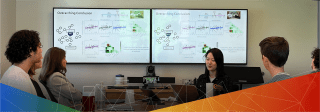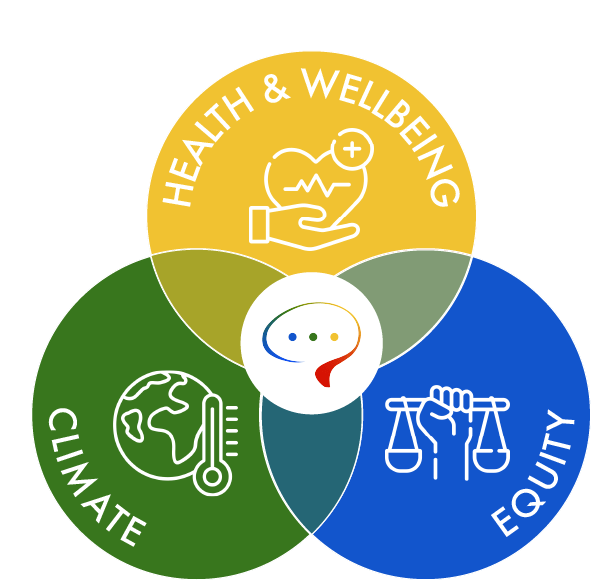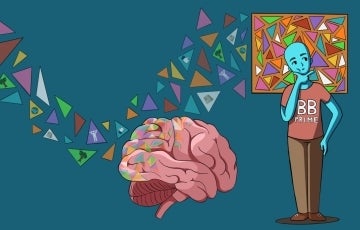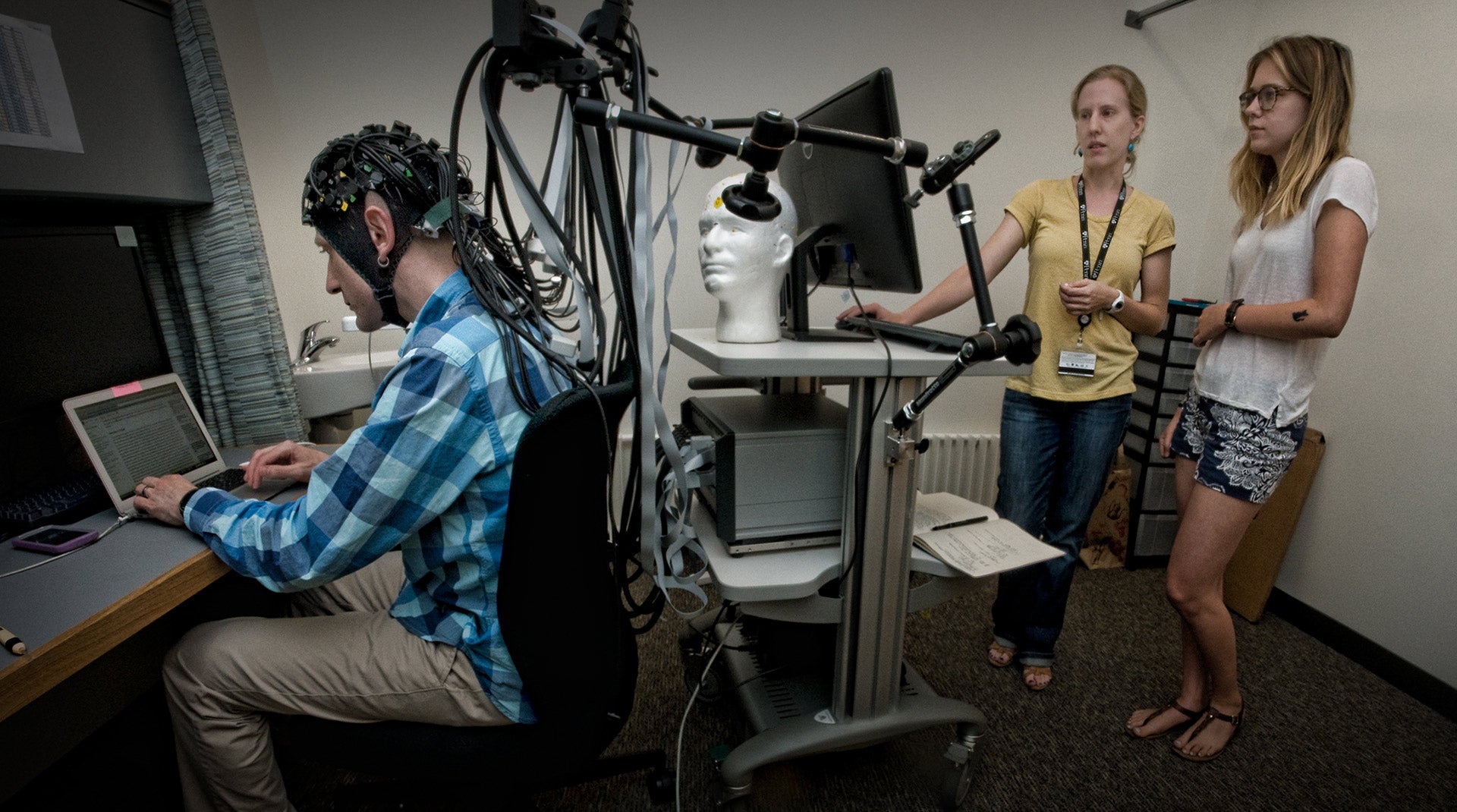
Research

Our lab takes an interdisciplinary approach to catalyze communication that increases human health and happiness. Major areas of work include health and wellbeing, climate action and resilience, and equity.
Health and Wellbeing
A major area of work in the lab uses approaches from communication, psychology, and neuroscience to help people change their health behaviors and improve their broader wellbeing. Health behaviors that we can change, like physical activity, alcohol use, and cigarette smoking, are leading causes of death in the U.S. and worldwide, but designing effective health campaigns to encourage behavior change is difficult. Foundational work in the lab used neuroscience to predict behavior change in individuals and large media audiences following exposure to persuasive messages. Work in the lab also uses neuroscience to understand what makes health behaviors and successful ideas spread through social networks. Humans are fundamentally social beings, and the structure and composition of our social networks have an enormous impact on our decision-making, feelings of connection, and ultimately our health. Current work in the lab integrates knowledge about social and neural networks to answer questions about how brain function shapes social networks and how social connections shape the brain. Recent work incorporates interdisciplinary approaches to examine behaviors in their real-world contexts and over time, incorporating multimodal methods such as ecological momentary assessment, social network analysis, and geolocation to track how people’s thoughts, feelings, and behaviors evolve in daily life.
Current work in this area includes several major funded projects (GeoScan, SHINE, mega-analysis, BB-PRIME Phases I and II), as well as work studying the relationships between loneliness, social networks, and brain activity; and studies examining wellness in adolescence and emerging adulthood, with a particular focus on the roles of self-clarity and autonomy.
Climate Action and Resilience
The climate crisis is an existential threat that impacts human health and happiness and requires large scale individual and collective action. In line with our mission to promote health and happiness, Dr. Emily Falk also directs the Climate Communication Division of the Annenberg Public Policy Center (APPC). The Climate Communication Division is a hub for interdisciplinary, translational research on climate communication, resilience, action, and policy which focuses on topics at local scales (for example, environmental justice initiatives in West Philadelphia) and global scales (i.e., the development and evaluation of media campaigns that communicate climate science knowledge). The division also focuses on the neural, psychological and/or sociological mechanisms that motivate climate-related belief, attitude, and behavior change, as well as resilience and social connection. Through this work, we aim to educate and co-create scholarship with others across the academy, the public, policymakers, and journalists as key contributors and beneficiaries. The division works in partnership with the Communication Neuroscience Lab and other APPC divisions, institutes, and affiliated centers, such as the Penn Center for Science, Sustainability, and the Media.
Current work in this area includes the BB-Prime intervention tournament project, development of an Academically Based Community Service (ABCS) youth-focused climate communication course with Penn’s Netter Center for Community Partnerships, and participatory action research with Penn Leads the Vote to increase civic engagement and voting among Penn students. Students and postdocs interested in working on research in this area will also be a part of and receive training from the Communication Neuroscience Lab.
Equity
The CNLab’s mission to increase human health and happiness includes research focused on understanding the interplay between equity, culture, climate, health behaviors, and the brain. We have studied how cultural contexts interact with people’s identities (e.g., race, gender, nationality) and how social status influences health-related decision-making, behaviors, and outcomes. Our research also explores the social-cognitive and affective processes that unfold in the face of racism and other structural factors that shape people’s daily experiences. Our work has identified neural signals that predict information sharing and behavior change across different cultural contexts, highlighting the brain's role in mediating cultural influence. Through these studies, we aim to advance health equity by integrating cultural considerations into the understanding of health behaviors and communication strategies.
Current work in this area includes the BB-Prime project, work studying inclusion and belonging on college campuses and in workplaces, and collaborations with Penn’s Netter Center for Community Partnerships to develop research practices that effectively engage and benefit the local community.

Main Grant-Funded Projects
Learn more about our large studies currently underway.

Brain-based Prediction of Message Effectiveness (BB-PRIME)
Integrating data from a large subject sample, we are exploring the causal relationships between message features, message sharing, and health behavior change, as well as exploring the impact of cross-cultural factors.

BB-PRIME Phase II — Climate Change Interventions
How can we motivate people to share information about climate change and take action to address it? We’re testing and comparing psychological interventions using an intervention tournament approach to identify which strategies work best, and for whom.

GeoScan Smoking Study
We aim to help prevent cancer by understanding how tobacco marketing influences the brains of smokers, taking into account where they encounter it in their daily lives.

Social Health Impact of Network Effects (SHINE)
We are examining brain and social networks and how they contribute to alcohol use among college students. Our goal is to design interventions that prevent problem drinking.

Our Publications
Download PDFs and supplemental materials of our lab’s publications.
